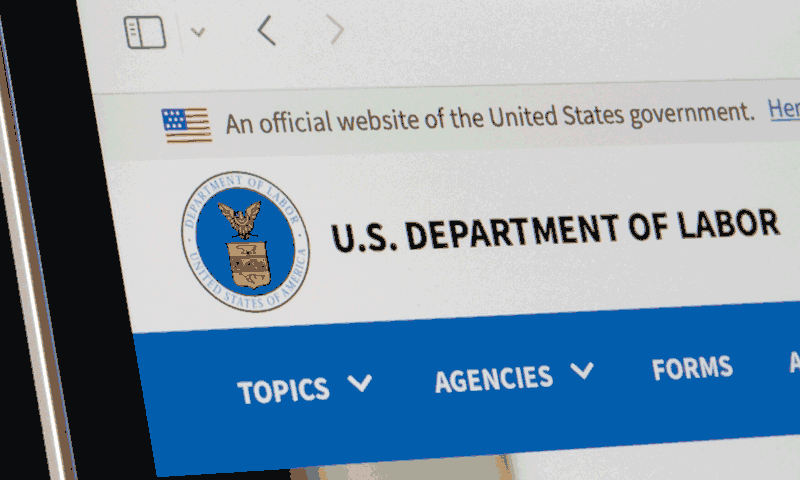I do not rely on media reaction in any format to news/announcements which appear to indicate a change in the way we work or live. We live in what we describe as a democracy and free economy. However, governments, local and national, will intervene from time to time to attempt to ensure a fair and equitable marketplace. The following is lifted from a perception of an announcement made by our U.S. Government on January 9, 2024, concerning the manner in which independent contractors will be defined. The new rule is very important, however, there will be many different perspectives. Is the new rule good or bad for independent contractors?
One of the most accurate perspectives was written by contributors at the law firm of Harland & Knight LLP and posted on Microsoft Bing. You can access the article here: New Rule on Independent Contractor Classification Will Have Profound Impact on Businesses | Holland & Knight LLP – JDSupra. We reprint the article in the following section:
The U.S. Department of Labor (DOL) announced on Jan. 9, 2024, the issuance of its final rule regarding whether a worker is an employee or an independent contractor under the federal Fair Labor Standards Act (FLSA). The new rule, which becomes effective March 11, 2024, rescinds the 2021 independent contractor rule issued under former President Donald Trump and replaces it with a six-factor test that considers: 1) opportunity for profit or loss depending on managerial skill; 2) investments by the worker and the potential employer; 3) degree of permanence of the work relationship; 4) nature and degree of control; 5) extent to which the work performed is an integral part of the potential employer’s business; and 6) skill and initiative. Additional factors may be relevant if they depend on whether the worker is economically dependent on the potential employer for work.
Importantly, the rule does not adopt an “ABC” test and does not impact independent contractor classification under state laws utilizing the “ABC” test, such as California, Massachusetts, and New Jersey, to name a few. The rule only revises the DOL’s guidance on how to analyze who is an employee or independent contractor under the FLSA.
Although the DOL believes the new rule will provide greater clarity and consistency for businesses, the opposite is likely to be true. It could potentially lead to an influx of litigation against certain businesses, particularly in the transportation and service industries, by attorneys seeking to have independent contractors reclassified as employees and awarded damages for overtime and deductions from pay, even if those workers prefer to be independent contractors. A key question, in the DOL’s view, is whether, as a matter of “economic reality,” the workers are dependent on the alleged employer or are in business for themselves. But the rule fails to provide a realistic solution for the frequent scenario where workers who desire to be independent contractors choose themselves to be “economically dependent” on work made available to them by one company, such as an ongoing business relationship between a vendor and its customer. As such, the rule is likely to create more uncertainty for companies that utilize legitimate independent contractor relationships to conduct their business functions.
The rule also tips the scales in favor of a worker being an employee if the work they perform is critical, necessary, or central to the potential employer’s business. But few businesses choose to pay for services that are not in some way necessary. Similarly, actions taken by companies to ensure compliance, safety, quality control, and contractual or customer service standards may be indicative of control over the worker under the new rule, which is directly at odds with numerous court decisions finding those actions to be reasonable and justified. Moreover, simply reserving, but not exercising, control over the performance of the work is given greater relevance under the new rule, which will require certain businesses to reevaluate their written agreements with contractors.
From this perspective, the new rule represents opportunity. Recent research conducted by Peterson & Fleming accessible free at www.ultimategigresources.com emphasizes basic motivations for those who engage in the gig economy. Gig providing companies are usually tech-based companies that engage independent contractors to perform services which engage consumers. The income opportunities provided are designed to offer a flexible work opportunity that is primarily designed to offer a complimentary income opportunity, not a full-time earning opportunity. In the recent study released by Peterson/Fleming reveals that 75% of gig workers earn less than $1,000.00 per month and 59% earn less than $500.00 per month. Gig work is offered in many different formats attracting the highly skilled and professional as well as workers of diverse backgrounds who seek to leverage more of their underutilized assets including knowledge, skills, experience, and even passion and purpose. Gig work and most income opportunities that fall into a 1099 category provide the worker with the flexibility and freedom to work when and how the worker prefers vs having to adhere to the requirements most traditional employees are expected to adhere to.
I personally, as an advocate of free enterprise, take the position that the way we work will continue to evolve more and more toward an entrepreneurial model whereas freedom of choice is more controlled by the worker. Benefits provided employees are great, however, entrepreneurs have always been responsible for sourcing their own benefits. Organizations like AFE are making it possible for workers of all types, independent contractors and 1099 workers, the opportunity to gain access to valuable information in many different formats as well as access to the finest in insurance and financial products and services at affordable prices.
The new rule that we are discussing will be debated. Pro-labor will probably advocate for such ideas as higher minimum wage, no independent contractor classification, reclassification of many independent contractors as employees, along with attempting to force gig providing companies to pay benefits similar to those employees are eligible. Ultimately, I personally believe that those who have experienced the benefits of being able to earn income as an independent contractor with the assets of flexibility and freedom in how work can be done, will prevail! We believe that freedom of choice is a precious freedom, and the new rule will help to eliminate gray areas and prevent any further emergence of those who use independent contractor status to take advantage of a work force vs provide real freedom of choice in how the work can be done.

